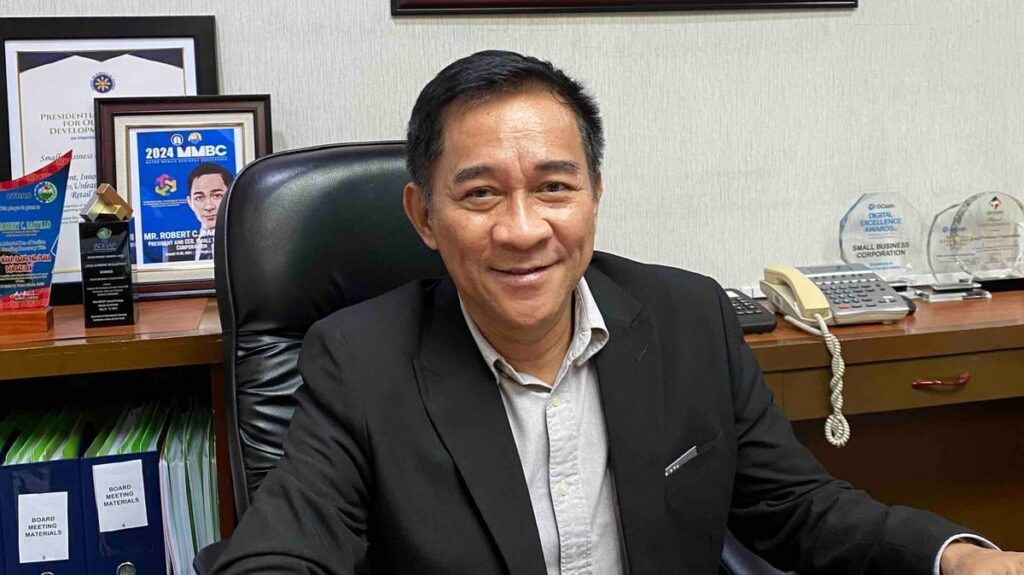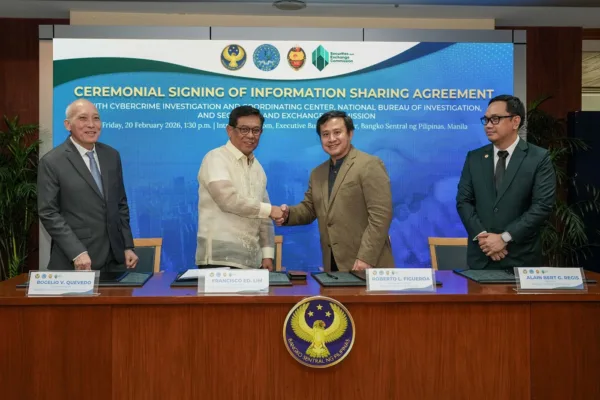by Jan Michael Carpo, reporter
Micro, small, and medium-sized enterprises (MSMEs) across the Philippines affected by the devastation brought about by the recent typhoon are being offered a much-needed financial lifeline. Earlier in July this year, Typhoon Carina shut down financial markets in the country due to massive flooding that is comparable to Typhoon Ondoy in 2009.

MSMEs get support from DTI’s financial arm
The state-run Small Business Corporation (SBCorp), the financial arm of the Department of Trade and Industry (DTI), has just launched the Enterprise Rehabilitation Financial (ERF) program, a targeted initiative designed to help these businesses rebuild and recover.
Announced last August 29, the ERF program is a timely response to the overwhelming challenges faced by MSMEs in the typhoon’s aftermath. These businesses, often the backbone of local economies, are grappling with significant revenue loss, operational disruptions, and the daunting task of repairing or replacing damaged inventories and fixed assets.

Robert C. Bastillo, President and CEO of SBCorp.
“The destruction caused by Typhoon Carina has been catastrophic, surpassing even the rainfall record of Super Typhoon Ondoy,” said Robert C. Bastillo, President and CEO of SBCorp. “We understand the immense hurdles that MSMEs are currently facing as they work to resume normal operations. This emergency fund is specifically designed to support their short-term needs with favorable terms that are not available in the market.”
The ERF program offers loans of up to P300,000 to both new and existing SBCorp borrowers. These loans come with highly flexible repayment terms extending up to three years, alongside a three-month grace period for those requiring immediate payment relief.
For the first year, the loans are interest-free, providing crucial breathing room for businesses to stabilize. In the second and third years, the loans will carry a minimal interest rate of one per cent per month on the decreasing balance.
ERF program to offer a wider geographical scope
The geographical scope of the ERF program is extensive, targeting MSMEs in regions that were hardest hit by Typhoon Carina. These include Davao Occidental (Jose Abad Santos and Trinidad), Cavite, Rizal, Laguna (Mabitac), Oriental Mindoro (Pinamalayan and Baco), Romblon (San Andres), Zamboanga (Tambulig), Ilocos Norte, La Union, Bataan, Pampanga, Bulacan, Tarlac (Camiling), and Cotabato (Kabakan and Pikit).

For existing SBCorp borrowers who are current on their loan payments and have not yet reached the P300,000 loan cap, accessing this facility is straightforward, with no additional documentation required. “We wanted to make this process as seamless as possible for our existing clients,” Bastillo emphasized.
New borrowers, however, will need to provide some documentation depending on the loan amount. For loans exceeding P100,000, applicants must submit either a Barangay Micro Business Enterprise (BMBE) Certificate or a Mayor’s Permit.
For loans up to P100,000, an official Barangay Certification will suffice. Additionally, all new borrowers will be required to present proof of a bank or e-money account as well as a government-issued ID, and any other pertinent business documentation as needed.
SBCorp’s ERF program is a beacon of hope for the thousands of MSMEs struggling to regain their footing in the aftermath of Typhoon Carina. By providing accessible and affordable financing options, SBCorp is helping to ensure that these businesses can rebuild stronger and more resilient than before.
The application process for these loans is open until September 2024, giving affected businesses ample time to take advantage of this critical support.
As the Philippines continues to face increasingly severe weather events, programs like SBCorp’s ERF are vital in safeguarding the future of the nation’s MSMEs — helping them not just to survive but to thrive, even in the face of adversity.







